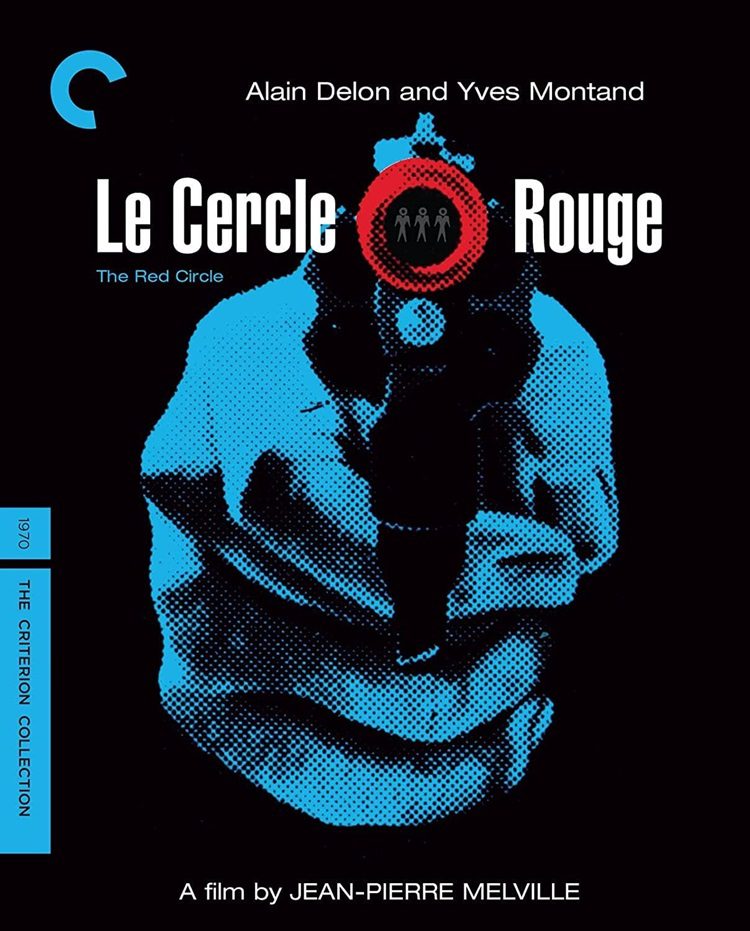
At first glance, Le Cercle Rouge seems like a fairly conventional crime drama, a perception that is upheld by the statements of its director and assistant director in Criterion’s enlightening bonus features. However, famed French director Jean-Pierre Melville somehow synthesizes cinematic magic out of his simple tale, displaying a mastery of mise en scéne that leaves the film’s carefully composed images burned in memory long after the story fades.
That story focuses on a dapper master thief named Corey (Alain Delon), recently paroled from prison and on the prowl for some new criminal activity. When he crosses paths with escaped convict Vogel (Gian Maria Volonté), he finds himself with a new partner and a new plan for ill-gotten riches. The duo eventually recruit an alcoholic ex-cop named Jansen (Yves Montand) as their sharpshooter and driver, and set out for a major heist. Meanwhile, dogged inspector Mattei (André Bourvil) is hot on the trail of Vogel, and so by association the other crooks as well, leading to an inevitable showdown to close the film. There are a few other minor characters thrown into the mix, but that’s really the extent of the central plot, with no surprising twists or conclusion in play.
The film unwinds at a very leisurely pace, with Corey and Vogel not even meeting until 40 minutes in and Jansen joining well after that. Their heist is also explored in great detail, playing out in virtual real time as they slowly break in, methodically execute their detailed plan, and make their getaway. As such, it’s best to attempt the film when fully alert as its plodding and straightforward pace offers precious little excitement to keep drowsy eyelids aloft.
The real power of the film is its cinematography, with artfully constructed sequences such as Vogel’s train escape, Jansen’s alcoholic fever dream of rats and lizards crawling over him, and Corey’s desperate flight from justice amongst its most memorable. It’s fascinating to see how such a simple story with an absolute minimum of dialogue can still become such a rewarding experience in the hands of this master director. Of course those shots are made all the more vivid thanks to Criterion’s careful restoration of the film, accompanied by an uncompressed monaural soundtrack, delivering crisp and vibrant images and sound.
The bonus features are highlighted by a lengthy interview with Melville conducted shortly after the film’s release, delving into his history and process and making the surprising revelations that he hated directing and hardly ever watched his own completed films, instead focusing his primary attention and affection on the writing and editing processes. He also makes a funny statement along the lines that he doesn’t understand why anyone would want to watch his films, as even he would much rather watch just about anything else. He admits a deep love of American cinema and a reliance on its tropes for his own work, drawing a comparison between our Westerns and classic crime films and his script for this film.
Elsewhere, assistant director Bernard Stora enforces the idea that the script was nothing special, revealing that he couldn’t imagine how or why it would be filmed when he first read it but also confiding that the final product was classic due to Melville’s superior shot composition, making a scene as simple as Vogel’s train escape transcend the ordinary through his meticulous planning and artistic eye.
The bonus features are rounded out with some other historical interview segments aired around the time of the film’s release, as well as a couple of trailers.